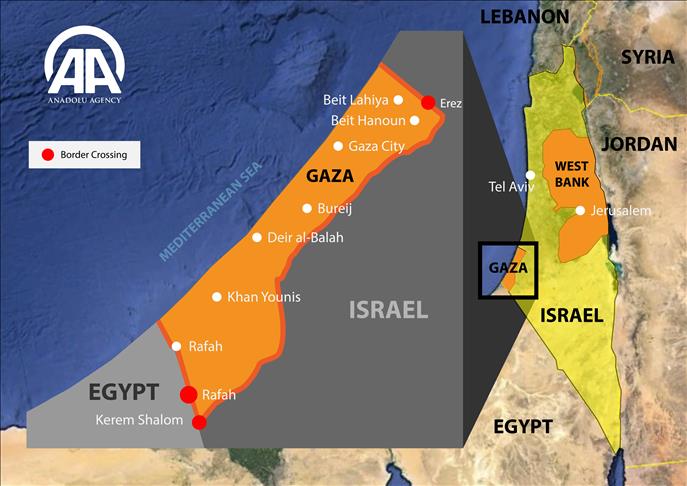Gaza journalists caught between death, professional responsibility
Israel indiscriminately targeted everybody, including women and children, regardless of any humanitarian considerations or laws.

GAZA CITY
As they adjust their cameras to snap a photo of a Palestinian child who has just lost his or her leg to an Israeli airstrike, or a mother who has just lost one or two – or all – of her children, reporters and photojournalists in the Gaza Strip are willing to risk their lives on a near-daily basis.
"Despite Israel's unrelenting attacks on the Gaza Strip and the precarious nature of reporting events here, journalists and photojournalists have to keep reporting the news," Palestinian journalist Walaa Baroud said.
"Journalists have to wipe away their tears and keep focusing their cameras so the world can see what is happening," he told Anadolu Agency in an interview.
He said Israel indiscriminately targeted everybody, including women and children, regardless of any humanitarian considerations or laws.
Baroud's words may go towards explaining the death of 25-year-old Palestinian journalist Khaled Ahmed, who worked for a local Palestinian news agency. Ahmed was killed on Sunday by an Israeli artillery barrage on the residential neighborhood of Shujaya in eastern Gaza City.
His death was roundly condemned by the Palestinian Journalists Union, which has continued to stress the importance of reporting ongoing Israeli atrocities in the Gaza Strip.
"Journalists play an important role exposing Israeli massacres in the Gaza Strip," the union said in a statement issued following Ahmed's death. "Using photos and videos, these journalists have the ability to make the world a witness to Israeli crimes."
-Journalists targeted-
In its statement, the Palestinian Journalists Union asserted that Israel had carried out 37 intentional attacks on journalists and media institutions since July 7, when it began its onslaught on the blockaded Gaza Strip.
On Monday, an Anadolu Agency photojournalist was injured in an Israeli strike on a Gaza City hospital; a second AA photojournalist narrowly escaped injury in a separate strike.
AA photojournalist Anas Abu Maelaq was moderately injured in the stomach on Monday by an Israeli aerial attack on the Al-Aqsa Martyrs Hospital.
He was immediately taken to hospital, where he underwent surgery before being transferred to southern Gaza's European Hospital for further treatment.
Belal Khaled, Abu Maelaq's colleague, narrowly escaped a separate Israeli air attack near southern Gaza's Nasser Hospital.
Abu Maelaq and Khaled both work as freelance photojournalists for AA, which has closely covered Israel's two-week-long onslaught on the embattled Gaza Strip.
Since July 7, at least 541 Palestinians have been killed – mostly civilians – and more than 3150 injured in unrelenting Israeli attacks on the besieged coastal enclave.
Sunday was the onslaught's deadliest day yet, with at least 110 Palestinians – including 72 in Shujaya, a residential area of eastern Gaza City – killed by fierce Israeli air and artillery attacks.
Israel's military operation, dubbed "Protective Edge," is the self-proclaimed Jewish state's third major offensive against the densely-populated Gaza Strip – which is home to some 1.8 million Palestinians – within the last six years.
-Media enmity-
On the streets of the Gaza Strip, journalists and photojournalists hunt for news to report or moving images to snap on their cameras.
Everyday Gazans, meanwhile, appear to have vanished completely amid ongoing Israeli airstrikes and artillery barrages.
Reporters and photojournalists, for their part, wear bulletproof vests – but these can't protect them from what some Gazans refer to as "the shrapnel of death" that accompanies most Israeli attacks.
Palestinian journalist Hossam Salim noted Israel's tendency to target journalists, pointing out that three journalists had been killed during Israel's bloody 2008/09 onslaught on Gaza (dubbed "Operation Cast Lead").
"Israel doesn't want the camera to show – or journalists to write about – what's going on here," Salim said.
By Ola Attalah
englishnews@aa.com.tr


